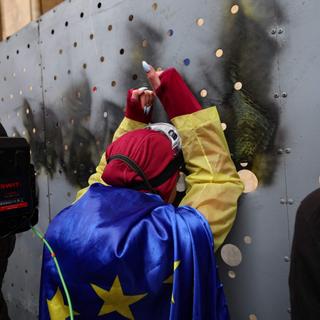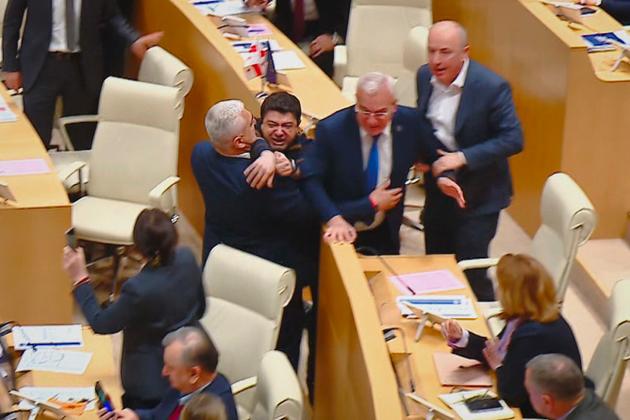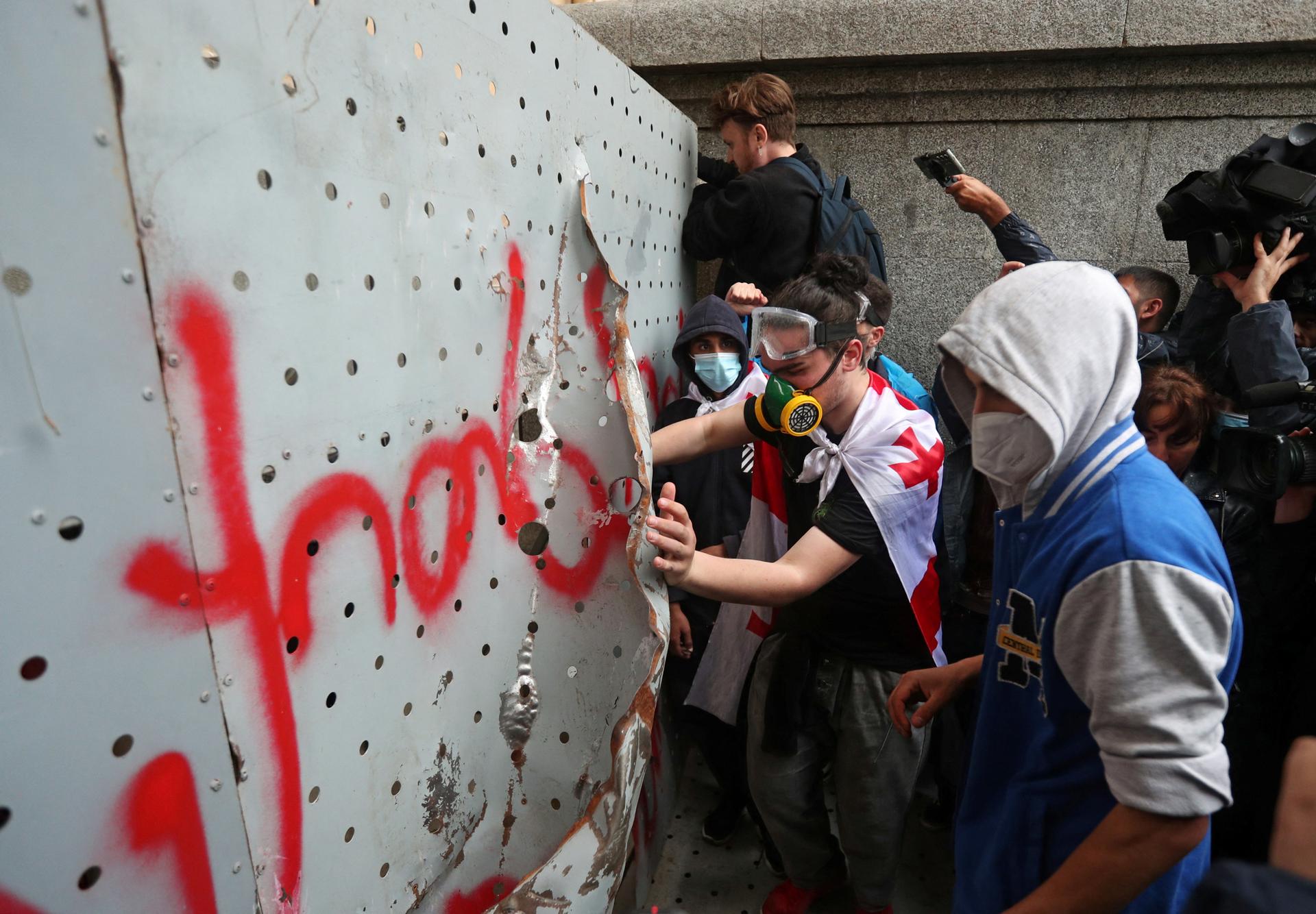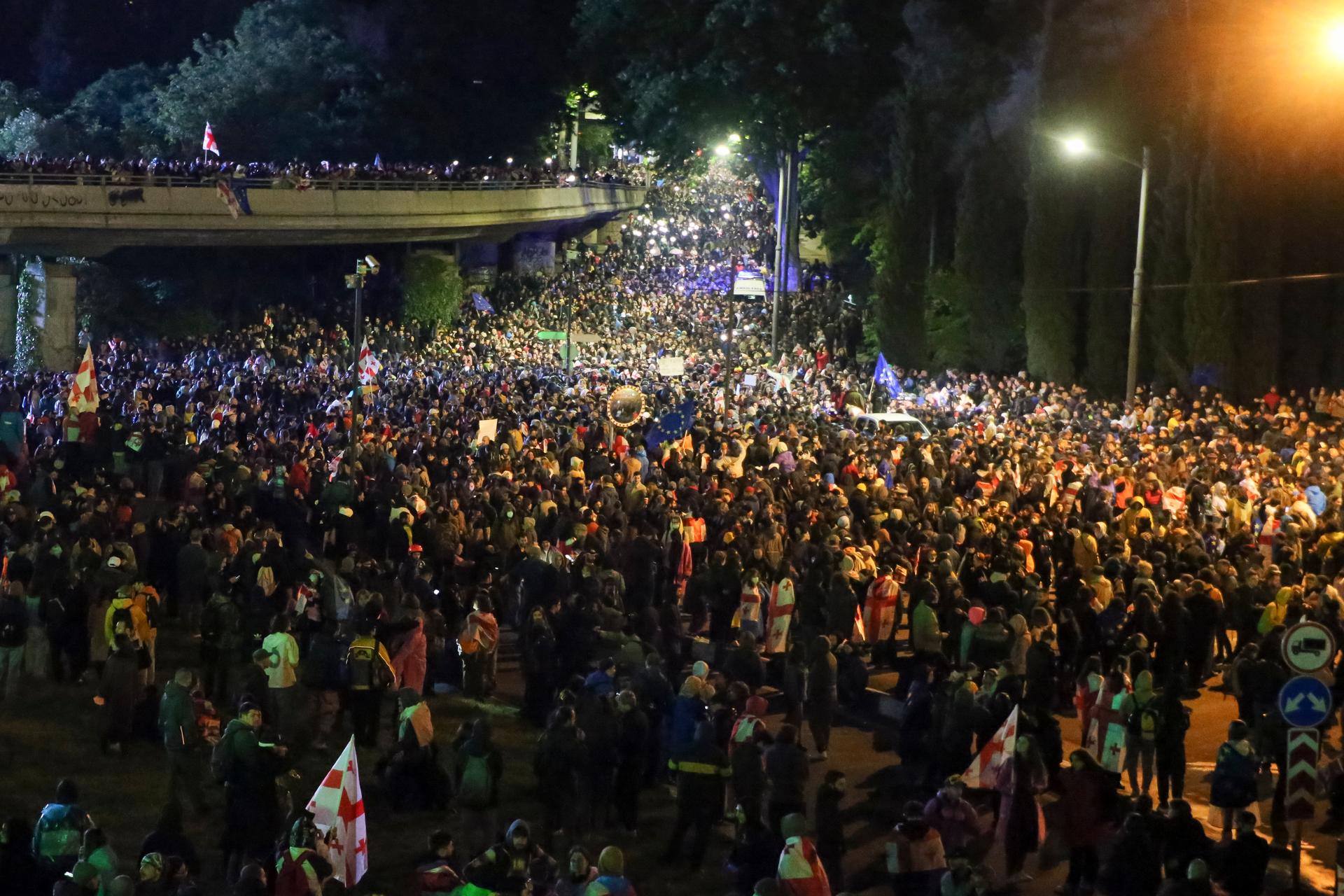


Georgia's parliament adopts Russia-style 'foreign influence' law despite protests
NewsModeled on a piece of Russian legislation designed to silence Vladimir Putin's critics, the text stigmatizes NGOs and media outlets that receive more than 20% of their funding from non-Georgian sources.
As expected, MPs from Georgia's ruling Georgian Dream party passed the controversial "foreign influence" bill on Tuesday, May 14, despite the thousands of demonstrators protesting outside parliament against the bill, which has been widely criticized as being similar to a law passed by the Russian Duma in 2012 to silence critics of Putin's regime.
The most daring of the protesters massed on the building's steps and tried to force their way into the parliamentary chamber where, between two scuffles and several volleys of insults, the MPs finally adopted the bill in the afternoon, by 84 votes to 30.
Although the government has claimed that the law aims to promote transparency in funding sources for non-governmental organizations and independent media outlets, the opposition believes that it will inevitably limit their actions. In a speech on Tuesday, Georgian Dream MP Archil Talakvadze accused the opposition of "using the demonstrations for political ends," of banking on a "radical turn" of events. Opposition MP Ana Tsitlidze, of the United National Movement party, countered that the demonstrations showed, on the contrary, how united Georgia was "in fighting for its European future."


To come into force, the bill must now be signed by President Salome Zurabishvili. Having come out in support of the demonstrators, the former French diplomat has pledged to veto the law, but Georgian Dream, which has a majority in Parliament, has said it could override her. "It's true, the president's veto will certainly be overcome, we know that. Nevertheless, it will be a major slap in the face for the ruling party, which risks going into the legislative elections [scheduled for October] while in a weak position," predicted Temo Kapatava, an employee of the television station affiliated with the Girchi opposition party.
The man, in his 40s, has been to all the demonstrations: "I haven't missed a single one!" He criticized the current government for being too soft on reforms. "If Georgian Dream hadn't taken the country off the path it was on, that of the reforms initiated by the previous government, we'd be in a much better situation today. We used to be champions when it came to reforms and innovation, and now we're stagnating. Armenia and Moldova are far more advanced in building a democratic and pluralist society than we currently are," he said.

Once the law had been passed, the demonstrators' ranks swelled. Late into the night, tens of thousands of people, young and old alike, loudly marched through the streets, attempting to cut off traffic at several points in the capital. By dawn, 13 people had been arrested.
You have 65.31% of this article left to read. The rest is for subscribers only.
